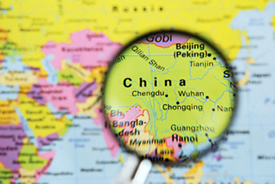 Pull back that lens, comrade!
Pull back that lens, comrade!
One FT op-ed and two full-pager analyses.
The op-ed from Yu Yongding, a Chinese academic and former official of the Chinese central bank: the fear of lots of wasted investment with this public-spending infrastructure splurge, plus deep concern over the stunning rise in housing costs over the past couple of years. The good news? Chinese tightening of the money supply seems to be working. Problem is, any slowdown always freaks the central gov, which now considers pumping more money back in.
Better the gov stands firm, says Yu, and let housing prices drop. Chinese banks have the assets to deal with even a 30% dive in prices.
The bigger problems: "over-dependence on investment and external demand, an unacceptably wide gap in incomes, too few social goods and an underdevelopment of the service sector." Reforms and anti-corruption efforts have also slowed.
Over time, Yu says, the investment route (or what I refer to as extensive growth) will reach natural ceilings "imposed by social, environmental and natural resources." Meanwhile, China's push for more exports is creating a bad backlash abroad.
The conclusion:
China has concentrated obsessively on GDP growth for far too long. But growth is not a good excuse for postponing much-needed structural adjustment.
And adjustments naturally translate into slowdowns: hence the op-ed's title that "China needs slower, better growth."
The two full-pagers give some sense of the regional danger (can Asia sustain enough growth to become the engine of the global economy for the next stretch?) and the internal hope (China's second-tier cities in the next geographic band inward from the coast now service as the engine of growth for the nation itself.
I think the latter, which I've talked about years ago in previous books, is finally coming to pass--and just in time. It's good for China's stability, the region's economic trajectory, and the world economy at large. As I always say in briefs, we don't want to own the problem of China's interior poor, thus we must accept that China's protectionism and "cheating" will need to continue for some time.
After the interior belt is developed, however, all China is left with is the vast, relatively uninhabited West.
For now, the competition is clear enough: when the coastal jobs go, do they go to Vietnam and others in the region? Or do they go inland?
Tricky row for China to hoe. Can't be too piggy, but need to be selfish enough.
However much China succeeds, its vision is turned somewhat inward--not necessarily a good thing for the world at large.